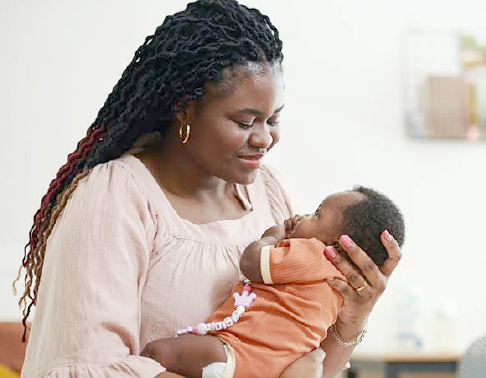Despite the proven benefits of exclusive breastfeeding, a lot of infants in Nigeria are not exclusively breastfed.
According to the World Health Organisation (WHO) and UNICEF, only 34 percent of Nigerian infants benefit from exclusive breastfeeding
This means that 66 percent of Nigerian infants are denied the benefits of exclusive breastfeeding, thereby exposing them to childhood illnesses and impaired growth, development.
Highlighting the benefits of breastfeeding, UNICEF Nigeria’s country representative, Cristian Munduate, said ” breast milk is the foundation of lifelong health and well-being.”
Breastfeeding provides essential antibodies that protect infants from illness and death, especially crucial during emergencies. It also reduces childhood illness and lowers the risk of certain cancers and non-communicable diseases for mothers.
Munduate noted that despite its advantages, many Nigerian mothers face cultural, social, and practical barriers that prevent them from exclusively breastfeeding for the first six months of their child’s life.
Meanwhile, the World Breastfeeding Week is celebrated every first week of August, to generate public awareness and support for breastfeeding.
This year’s World Breastfeeding Week, with the theme “Closing the gap: Breastfeeding support for all,” focuses on improving breastfeeding support to reduce health inequity and protect the rights of mothers and babies.
UNICEF and WHO have therefore called for collaborative efforts from the government, employers, healthcare providers, and communities to address these issues.
The organisations called for the extension of paid maternity leave, creating breastfeeding-friendly workplaces, and providing comprehensive breastfeeding education and support services.
Meanwhile, the federal ministry of health and social Welfare has said that the theme for this year’s event emphasises the collective responsibility of all, to ensure that every mother receives the support she needs to make breastfeeding a successful and fulfilling experience.
The director of press and public relations in the ministry, Patricia Deworitshe, in a press statement, stated that in order to successfully breastfeed their babies, mothers need support from the health system, family members, community members and workplace.
She said this support is critical to the success of breastfeeding because knowledge sharing, encouragement, support with household chores, call-ups and creation of an enabling environment makes the act of breastfeeding easier for the mother.
According to her, “It is essential that no-one is left behind especially vulnerable mothers who may need additional assistance to reduce breastfeeding inequalities. Women in all settings need and deserve support to optimally breastfeed their babies.
“Hence, the ministry has dedicated 1st to 7th August, 2024 to celebrate the week long event with a series of planned activities.
“The ministry also recommends early initiation of breastfeeding within an hour of birth, exclusive breastfeeding for the first six months of life, continued breastfeeding up to two years of age or beyond, with the introduction of appropriate complementary food as from six months.”

